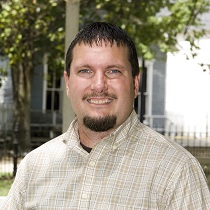 As part of our series about different types of youth work, this week we have an interview with Brent Lacy – a rural youth pastor.
As part of our series about different types of youth work, this week we have an interview with Brent Lacy – a rural youth pastor.
1. What type of youth work do you do?
I am a Rural Youth Pastor in West Central Indiana.
2. What do you do in an average week?
My week is split between lunches at our three county schools, networking with other area youth workers, ministry administration tasks (planning activity logistics, etc.), studying and lesson preparation.
3. How long have you been doing rural youth ministry?
I have been working with rural teenagers for over 13 years, the last 6 full-time.
4. What other types of youth work have you done previously?
While working in a bi-vocational youth ministry position, I also worked full time as a child abuse investigator in Missouri.
5. What age range do you work with?
I work with 7th-12th grade students from 4 different school districts in 2 counties.
6. What’s unique about your particular type of youth work?
Rural youth ministry is pretty common, as much of the US is very rural and sparse. However, it is rare to have a full time rural youth worker in a small (under 200) church.
7. What are some of the good things about being a rural youth pastor?
In rural youth ministry, you typically see smaller groups allowing you to focus more attention on helping individual students on their path to spiritual maturity.
8. What are some of the challenges of it?
In smaller congregations with smaller numbers of students, you also have the challenge of a smaller pool of volunteers to help you in your ministry. In many rural areas, resources can be scarce or non-existent, plus the population density is low so students are very spread out, meaning that you do a lot of driving.
9. Why are you passionate about this type of youth work?
I grew up in a very rural part of Southern Illinois. I serve in an area very similar to where I grew up, with a lot of the same challenges I see everyday here.
10. What would you recommend for someone wanting to get into rural youth ministry?
Patience. I say that for two reasons:
- It can be a long time before you move from volunteer/bi-vocational to full time (maybe never) and
- Never expect to build deep relationships in a new rural community quickly. It takes time.
11. Is there any special training or qualifications required?
Prayer, love for teenagers, and a desire to always be learning – whether through formal education or other conference/training opportunities.
12. Is there anything else you’d like to share?
One of the challenges of rural ministry is networking with other youth workers, because you may be many many miles apart, working vastly different schedules. It is difficult but very needed. Make use of all the resources that you have to network with other youth workers, because those students’ and parents’ eternities are too important for you to go at it alone.
About Brent:
Brent Lacy is a Rural Youth Pastor in Rockville, Indiana, where he lives with his wife and three kids. He is the author of Rural Youth Ministry: Thrive Where You’re Planted from Group/Simply Youth Ministry.
You can connect with him on his blog at MinistryPlace.Net or follow him on Twitter: @brentlacydotcom.
Please feel free to use the comments below if you have any questions about rural youth ministry. If you’re a youth pastor in a rural area, we’d love to hear about your experiences in the comments as well.
If you work in a different youth work field we’d love to interview you for this series, so please get in touch!
You can also connect with us by:
- Signing up to receive our posts via email
- Following us on Twitter
- Liking us on Facebook
- Signing up to our RSS feed